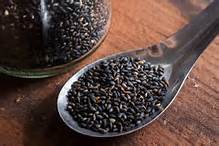What is it?
Collagen is an important building block for the skin. It makes up to 30% of the protein of the living body and 70% of the protein that makes up skin. Collagen ensures the cohesion, elasticity and regeneration of skin. Skin tissue is composed of various molecules, some of which are amino acids, and these amino acids are essential for maintaining an even skin structure and thus healthy skin.
The dermis, which provides the foundation for the skin, is closely involved in the skin’s elasticity and flexibility. Collagen is the main component of the dermis. Maintaining the amount of collagen is the key to beautiful skin. Glycine, proline, alanine and hydroxyproline are the main constituents of collagen; replenishing these constituent amino acids appears to be needed to maintain the amount of collagen at healthy levels.
Skin changes are among the most visible signs of aging. There has been a considerable increase in understanding how skin ages, along with significant progress toward reducing the visible signs of aging. Evidence of increasing age include fine lines, wrinkles and loss of elasticity such as sagging skin. Skin changes are related to environmental factors, genetic makeup, nutrition, and other factors.
With aging, the outer skin layer (epidermis) thins, even though the number of cell layers remains unchanged. Changes in the connective tissue reduce the skin’s strength and elasticity. This is known as elastosis.
Collagen, as a food ingredient has a texturizing effect while as a cosmetic ingredient, it has a moisturizing effect on the skin. It is also known to make the skin firmer, treat aging signs such as wrinkles and skin sagging. Collagen is now seen in almost every cosmetics brand from America to Asia. It is available as an eye cream, night cream, serum, facial foam, mask, and filler.
Hydrolysed Collagen (also known as Collagen Peptides) is becoming a very popular protein substitute. It is naturally found in humans & animals and is revolutionising the way people consume and utilise protein. It is fat-free, cholesterol free and easily digestible in liquid form. The human body absorbs and utilises liquid collagen more efficiently compared to powder and other forms.
Hydrolysed collagen is produced from collagen found in the bones, skin, and connective tissue of animals such as cattle, fish, horses, pigs, and rabbits.
The amino acid content of hydrolysed collagen is the same as collagen.
Hydrolysed collagen contains 20 amino acids, predominantly glycine, proline and hydroxyproline, which together represent around 50% of the total amino acid content.
| Amino acids | Percentage |
|---|
| Proline/Hydroxyproline | 25% |
| Glycine | 20% |
| Glutamic acid | 11% |
| Arginine | 8% |
| Alanine | 8% |
| Other essential amino acids | 16% |
| Other non-essential amino acids | 12% |
The bioavailability of hydrolysed collagen in mice was demonstrated in a 1999 study; orally administered. C hydrolysed collagen was digested and more than 90% absorbed within 6 hours, with measurable accumulation in cartilage and skin. A 2005 study in humans found hydrolyzed collagen absorbed as small peptides in the blood
Ingestion of hydrolysed collagen may affect the skin by increasing the density of collagen fibrils and fibroblasts, thereby stimulating collagen production
Some clinical studies report that the oral ingestion of hydrolysed collagen decreases joint pain, those with the most severe symptoms showing the most benefit.
Beneficial action is likely due to hydrolysed collagen accumulation in the cartilage and stimulated production of collagen by the chondrocytes, the cells of cartilage.
Several studies have shown that a daily intake of hydrolysed collagen increases bone mass density. It seems that hydrolysed collagen peptides stimulated differentiation and osteoblasts activity- the cells that build bone- over that of osteoclasts (cells that destroy bone).
Collagen is a fibrous protein that functions as a building block for skin, tendons, joints, other connective tissues and bones. Collagen also keeps skin, bones, teeth and blood vessels healthy. Taking collagen supplements helps replenish and replace natural collagen, which decreases with age
Reduction of Skin Wrinkles
According to the American Academy of Dermatology (AAD), skin wrinkle reduction is one of the possible benefits of taking collagen supplements. As people age, their skin’s natural elasticity lessens because of the decrease in collagen production. When the skin loses its elasticity, wrinkles and fine lines start to appear and skin will seem less firm and look loose.
The AAD notes that collagen supplements is one of several things you can do to improve your skin's elasticity and ability to recover from wounds. Wrinkle reduction and skin repair can also be achieved by using moisturizers, eating a balanced diet, getting enough sleep and by stopping smoking.
Collagen is a unique protein and the building material to renew cells in all areas of the body including: the hair, skin, nails, eyes, teeth, cartilage, bones, tendons, organs, arteries, blood vessels, hemoglobin, immune cells and the immune system. Collagen is responsible for eighty percent of all connective tissue and seventy five percent of the skin. Collagen, when hydrolysed into smaller molecules for easier absorption and combined with adequate amounts Vitamin C and certain amino acids, can be assimilated and utilised rendering a younger body.
Collagen production slows down as we age. The Aging process is accelerated after age 30 when we start to lose 1.5% of our natural collagen stores each year. By age 40 when most people start to notice hormonal and body changes, the body has already lost approximately 15% of its natural collagen stores.
 Collagen Peptides
Collagen Peptides are a natural bioactive ingredient that improves epidermis moisture content and prevents skin aging. Several studies have demonstrated that collagen peptides are highly digestible. If native collagen is very resistant and regarded as indigestible, collagen peptides can be easily attacked by proteolytic enzymes. More than 90% of collagen peptides are digested and quickly absorbed after oral ingestion. As a food ingredient, oral ingestion of collagen peptides has been reported as safe. In order to be active, collagen peptides must have an excellent bioavailability.
This has been confirmed in animals and human after oral administration wherein 95% was absorbed within the first 12 hours. These studies show that collagen peptides reached their peak value in cartilage after ingestion of collagen peptides and remained relatively high after 96 hours.
When collagen is digested, the peptides are attracted to cells that synthesize collagen in the human body, fibroblasts, and are the most common cells of connective tissues in the skin.
Collagen peptides may bring about the production and reorganisation of new collagen fibers by stimulating the fibroblasts cells. Furthermore, some studies show that collagen peptides increase the density and diameter of collagen fibrils in the dermis and may improve the strength of skin.
Addressing these skin care concerns is a lifelong process. Good nutrition and adequate fluids are helpful and can dramatically improve the youthful, healthy appearance of skin. Maintaining the right amount of collagen is the key to beautiful skin. Collagen is primarily composed of the amino acids glycine, proline, alanine and hydroxyproline.
These amino acids appear to be needed to maintain the amount of collagen at healthy levels and thus reduce the signs of skin aging.
A growing body of research is showing nutraceuticals can contribute to healthy skin. While topical creams and cosmetic products can affect skin condition from outside, nutritional supplements taken orally can have an impact from within the skin. Clinical research has shown that Vital Proteins' Collagen, a natural protein:
- Promotes younger looking skin;
- Improves skin moisture level;
- Improves skin smoothness by reducing the number of micro-relief furrows;
- Improves the signs of deep wrinkles
- Improves skin suppleness.
Vitamin C is a vital nutrient required to increase collagen production, while also providing stability and structure to the collagen itself. Amino acids must also be present to take this delicate material from a pro-collagen structure to the actual collagen material. Additional nutrients in large doses such as proline, glycine, lysine, copper and manganese are all required to produce strong collagen fibers and elastin.
Clinical studies verify that a regular intake of collagen, taken daily for up to 12 weeks, improves the basic skin condition and structure. Studies have shown that taking collagen peptides showed a significant improvement in skin elasticity and skin moisture.
Dr. Venessa’s Anti-Aging 3 Collagen, the world’s leading collagen source has used the research of the late Dr. Linus Pauling to create the very best in oral ingestible collagen. The 3.6 grams of hydrolysed Types I, II and III, bovine and chicken sternum collagen is combined with thirteen grams of the amino acids proline, lysine, glycine, copper, manganese and a 1,000 mg of pure buffered vitamin C. Daily consumption on an empty stomach (am or pm) leads to a stronger and more attractive body usually over a period of 2-6 months.

Reduction of Joint Pain and Stiffness
Relief from joint pain and stiffness is among the many benefits of taking collagen supplements, as described by the
National Institute of Arthritis and Musculoskeletal and Skin Diseases (NIAMS) . Collagen is responsible for keeping cartilage and joints intact and mobile by maintaining the fibrous and elastic structure of bones and joints. This elasticity enables people to move freely without pain or discomfort. Taking collagen supplements enables the joints to flex and extend properly. It also allows joints to absorb the shock associated with such everyday movements as walking and doing other activities.
Hydrolysed Collagen for Athletes, Muscle growth, and Joint Pain
In the United States, the CDC reported results from a 2010 survey that roughly 30% of adults are experiencing joint pain, back pain, or arthritis. Using hydrolysed collagen is not only a beneficial as an aid to relieve joint and muscle pain, but also is shown to be an effective preventative for such problems.
Branched-chain amino acids, which are contained in hydrolysed collagen, improve the body’s synthesis of protein while also increasing the capacity for protein synthesis. These combined effects result in gains for both muscle mass and generation. Additionally, clinic trials have shown that hydrolysed collagen dietary supplements assist athletes with joint pain and reduce the risk of joint deterioration. A 24-week trial which studied 147 subjects who were provided with either a collagen hydrolysate or a placebo produced significant results in reduced joint pain and improved overall performance.
Collagen supplements are the perfect protein to consume before and after exercise, helping to maintain and restore the protein content of muscle. Collagen peptides, which consists of 20% glycine and 8% arginine, may help the synthesis of creatine in the body.
Creatine
is a nitrogenous organic acid that occurs naturally in vertebrates and helps to supply energy to all cells in the body, primarily muscle. This has been shown to help improve performance during short periods of exercise, thus helping athletes to increase their body mass and reduce body fat percentage. Creatine is made of three amino-acids, glycine, arginine, and methionine. Each serving of Vital Protein’s Collagen Peptides contains 3.7g of Glycine, 1.5g of Arginine, and 108mg of methionine.
Several studies highlight the beneficial effect of oral arginine supplements on athletic performances by increasing strength. Arginine stimulates the release of growth hormone from the pituitary gland, which is known to increase muscle mass, and may explain the performance gain.
For sports nutrition,
Vital Proteins’ collagen supplements are the perfect protein to help muscle restoration after exercise, and it may be closely involved in creatine production, aiding athletic performance, due to it glycine and arginine content.
Hydrolysed Collagen for Weight Loss
Hydrolysed collagen has been utilised in energy bars because it helps curb your appetite.
While products containing collagen should not be your sole source of nutrition, they can help keep you from snacking between meals, and help burn excess fat when paired with exercise. While there have been no clinical studies to support or deny claims of weight loss from Hydrolysed Collagen alone, many doctors agree that it provides a usable protein that supports the body’s functions and gives you the energy needed to support you throughout the day.
Numerous studies show that dietary protein needs increase for individuals engaged in resistance and aerobic training. Individuals aiming to maximize nitrogen balance would likely benefit from repeated ingestion of moderate amounts of protein (~20g) at regular intervals (~3h) throughout the day.
Those individuals looking to reduce body fat and increase lean body mass through caloric restriction have increased protein needs. Increased protein intake reduces lean body mass loss during weight loss in athletes. Protein needs for energy-restricted resistance trained athletes are likely 2.3 - 3.1g / kg of fat free lean body mass. The 2.3g / kg was significantly superior to 1.0g / kg for maintenance of lean body mass in young healthy athletes.
For senior athletes, increasing protein intake improves muscle strength and insulin sensitivity.
Faster Wound Healing
According to the NIAMS, one of the benefits of taking collagen supplements is faster wound healing. Skin repair and wound healing after an injury usually happens on its own, but collagen supplements may speed up the process by stimulating tissue formation and wound contraction.
Hydrolysed Collagen for Cancer Treatment & Recovery
Cancer is a degenerative disease that takes a toll on your body, causing fatigue and loss of appetite, among other symptoms. Combined with the process of chemotherapy, which is detrimental to both your healthy and cancerous cells, the disease and treatment of cancer is extremely degenerative to muscles and tissues, and can lead to prolonged loss of appetite and fatigue. Doctors, as well as the American Cancer Society, recommend additional supplements of protein to heal tissues and help fight infection.
Collagen Benefits
- Hair Nail and Skin Health
- May decrease arthritis symptoms
- Can boost skin health and help reduce rashes, red patches or age spots
Dr Oz Collagen Anti-Ageing Dosage
Take 2 grams (2000mgs) each morning on an empty stomach
conclusion
Hydrolysed Collagen is high in essential amino acids and is effectively zero allergenic. It is being used in the medical field to help with recovery from sore joint recovery, anti ageing skin, cancer recovery treatment, and post-surgery treatments. Collagen is also commonly used as meal replacement for those who want to reduce weight. It helps maintain blood sugar levels while providing essential Amino Acids, giving an immediate boost of energy. Hydrolysed collagen is naturally caffeine free.
References: Lodish H, Berk A, Zipursky SL, et al. Molecular Cell Biology. Asghar, A and Henrickson, Iwai, K.Hasegawa, T. Taguchi, Y. Morimatsu, F. Sato, K. Nakamura, Cosgrove, M.C., Franco, O.H., Granger, S.P., Murray, P.G. and Mayes, A.E. Proksch E, Segger D, Degwert J, Schunck M, Zague V, Oess
Oesser, S Adam, M Babel, W Seifert, Barnett ML, Kremer JM, St Clair EW, Clegg DO, Furst D, Weisman M, Fletcher MJ, Chasan-Taber S, Finger E, Morales A, Le CH, Trentham DE, Moskowitz, R. Ruiz-Benito, P. Camacho-Zambrano, M.M. Carrillo-Arcentales, J.N. Mestanza-Peralta, M.A.; Vallejo-Flores, C.A. Vargas-Lopez, S.V. Villacis-Tamayo, R.A. Zurita-Gavilanes, Dr. Venessa, Moore, Daniel R., et al, Helms, Eric R., et al, Mettler, Samuel, Nigel Mitchell, and Kevin D. Tipton, Baglio, V., et al., Hoffman, J. R., et., Appleton, Jeremy.














































